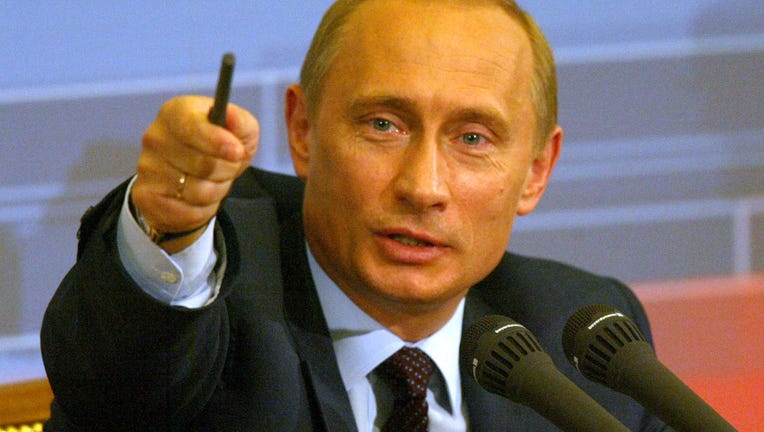Putin appeals directly to U.S. public with stinging op-ed on Syria

Photo courtesy of wikipedia.org
By Mitchell Landsberg, Los Angeles Times
He invoked God, the pope and the rule of law, and recalled a time when the United States and Russia were allies "and defeated the Nazis together."
But don't think for a moment that Vladimir Putin has lost his edge. In a bluntly worded commentary published in Thursday's New York Times, the Russian president castigated the idea of American "exceptionalism," essentially called the United States an international bully and said he "carefully studied" President Obama's speech Tuesday to the nation on Syria, and determined that he disagreed with it.
Still, Putin said his "working and personal relationship with President Obama is marked by growing trust," and he welcomed Obama's willingness to work with Russia on a plan to place Syria's chemical weapons under international control.
"If we can avoid force against Syria, this will improve the atmosphere in international affairs and strengthen mutual trust," he wrote. "It will be our shared success and open the door to cooperation on other critical issues."
It is unusual, but not unheard of, for a foreign leader to publish commentary in an American newspaper as a way of influencing U.S. public opinion. Putin began his piece by saying that the furor over Syrian chemical weapons "prompted me to speak directly to the American people and their political leaders." He added, "It is important to do so at a time of insufficient communication between our societies."
Putin warned that a unilateral U.S. military response to Syria's alleged use of chemical weapons would undermine the United Nations and violate international law. "The law is still the law, and we must follow it whether we like it or not," he said -- words that will no doubt be parsed by human rights campaigners in Russia who have accused Putin's government of bending the law and court system to its own purposes.
In some of the most stinging criticism of the United States, Putin wrote that it was "alarming that military intervention in internal conflicts in foreign countries has become commonplace for the United States." He added that "millions around the world increasingly see America not as a model of democracy but as relying solely on brute force."
The Russian president ended with a critical discussion of Obama's speech, in which the American president laid out the reasons for intervention in Syria but said he wanted to explore Russia's idea for a peaceful resolution to the crisis. Obama also explained why the United States was uniquely equipped to act, and talked about its history of leadership in international crises.
"That's what makes America different," the president said. "That's what makes us exceptional."
Seizing on that, Putin said: "I would rather disagree with a case he made on American exceptionalism. ... It is extremely dangerous to encourage people to see themselves as exceptional, whatever the motivation. ... We are all different, but when we ask for the Lord's blessings, we must not forget that God created us equal."
Words seldom, if ever, heard from a Russian head of state.
To read the complete opinion piece by Putin, go here.

